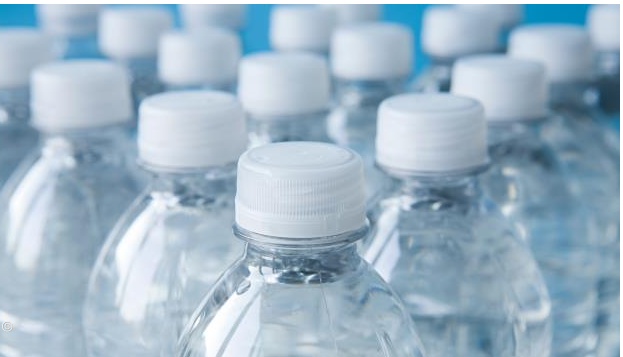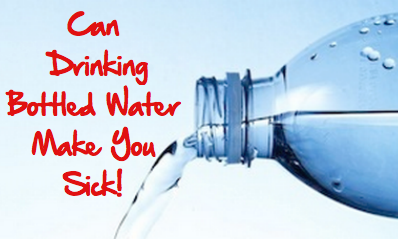Can Drinking Bottled Water Make You Sick
Summer is coming and that means warm weather, fun in the sun – and a need to keep hydrated. Most people know these days that you need to drink more water in the summer when it is warm and you need to drink even more water if you are outside doing physical activity. This point is not up for debate; however, what you drink to stay hydrated is a choice you can make.
Many people reach for the bottled water that they buy from the store with the thought that it is safer than tap water. As long as it is bottled water it must be ok to drink right? This is not true. There are many misconceptions about bottled water. In fact, bottled water might be making you sick!
Bottled Water is Not Regulated
The water that flows from your tap in your kitchen (for free, it should be noted) is regularly tested. The results are public to anyone who wants to see them. Tap water must be Federal and State standards of acceptability. Toxins are very minimal, when they are found at all.
What about bottled water? Did you know that bottled water often comes from the same municipal water that others are drinking for free? It just gets put into a pretty package that looks nice to carry around. It is often untested and there are no regulations that standardize the sales of bottled water. The scary thing is that by putting the water in those plastic bottles, the water becomes less healthy and even dangerous due to toxins that can leak out of the bottles and into the water!
Consider the Condition and Age of the Bottle
If you do insist on drinking bottled water there are a few things you should keep in mind to avoid consuming water that is contaminated by toxins from the water bottles. These things are easy to remember and will make your water safer to drink.
• Check the bottom of the water bottle. Did you know that water bottles have a best before date? It is usually around 6 months. The reason for this is because the longer the water stays in the bottle, the more toxins are released from the plastic. Once the water has been in the bottle for about 6 months, the toxin levels are considered to be unsafe for human consumption. If you buy bottled water in bulk, try not to buy more than you can drink in 6 months.
• Don’t freeze water in the water bottle you bought it in. When water is frozen it stretches the plastic of the bottle, releasing dioxins that can make you very sick.
• Don’t let water bottles sit in the back seat of the car and get warm. Heat also changes the formation of the plastic and dioxins are released. If you have a bottle of water that has been sitting out in the sun all day long or in a hot backpack, throw it out.
• Check the bottle your water is stored in for dents. Dents allow toxins to be released faster.
• Hand wash water bottles instead of washing them in a dishwasher. Purchase a baby bottle brush to get it clean inside, rinse well, and let air dry.
The condition of the bottle and the age of the bottle that holds your water will determine how much toxins are being released. Scratches and dents and water bottles that have been under extreme temperatures are modified from their original state and this allows toxins to seep from the plastic into your drinking water.
Alternatives to Bottled Water
If you think that no longer buying bottled water will make you die of thirst this summer, don’t worry. There are many alternatives to bottled water that you can implement.
First, tap water is free. Start using that! If you’re still concerned about the safety of tap water in your area, buy a filter that you can attach to the faucet. Water filters for the tap are small and unobtrusive these days so you do not have to sacrifice space. The water that is filtered from your tap is likely safer than any water you buy in a bottle.
For containers, look for aluminum or glass bottles. Buy them once and they are good to use for a long time.
If you prefer light weight water bottles that are made from plastic, look for bottles that have safety symbols or indicators on them. The ones you want to look for are:
• HDPE2: not connected to chemicals that leak into water; Nalgene has some good choices.
• PET or PETE1: safe for one time use only
• PP5: made with less chemicals than most water bottles and can be refilled.
Look for reusable water bottles that are sturdy and safe. Carry one with you at all time. Don’t be afraid of tap water or water fountains. Remember that what you are getting in a bottle of water that you buy in the store could be the same water you get from the tap, but with the added problem of toxicity from the plastic in the bottle.



Leave a Reply